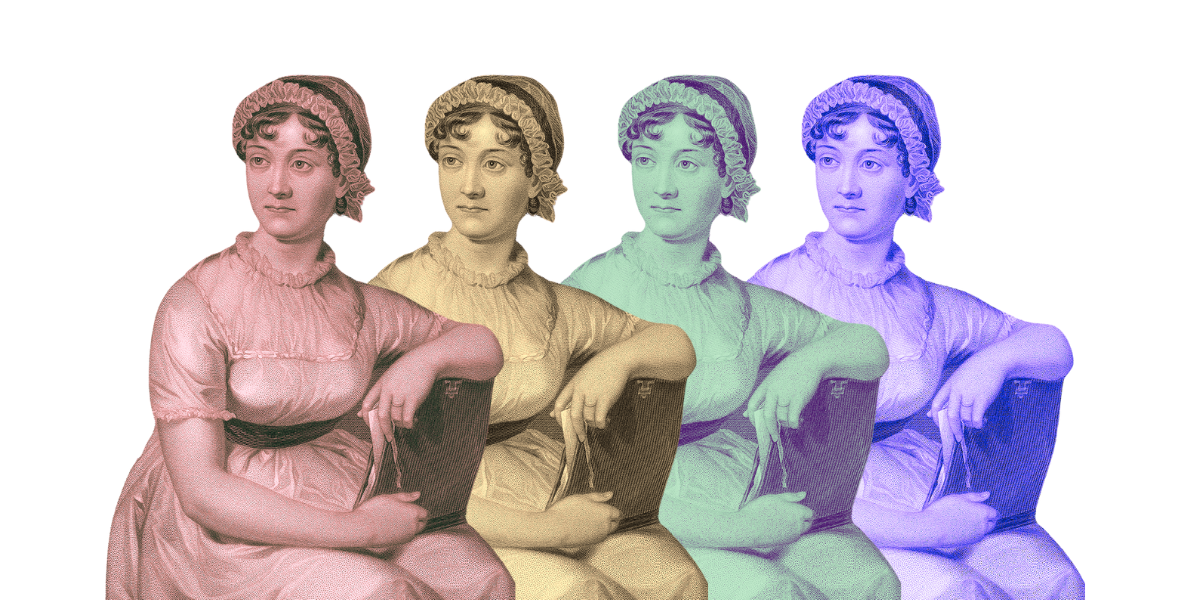A Haunting
Virginia Woolf is haunted. By a question as old as time.
In a paper read to a branch of the National Society for Women’s Service in 1931, Woolf addresses the crowd of women and describes her phantom: “The shadow of her wings fell on my page; I heard the rustling of her skirts in the room.”
Every time Woolf picks up her pen, the phantom is there — whispering in her ear, attempting to guide her pen in an act of possession.
Who is this creeping menace that haunted Woolf as she wrote?
“She was intensely sympathetic. She was immensely charming. She was utterly unselfish. She excelled in the difficult arts of family life. She sacrificed herself daily. If there was chicken, she took the leg; if there was a draught she sat in it…she never had a mind or a wish of her own, but preferred to sympathize always with the minds and wishes of others…”
She is everything society tells Woolf she ought to be.
She is the tension between being a doting mother and a working woman. She is the ever-present question: Is it possible to be a writer and a parent?
Woolf called her “the Angel in the House." She took inspiration from a poem of the same name by Coventry Patmore, first published in 1854. But far from being a story about wrestling with one’s identity, Patmore’s nearly epic-length scribe venerated his wife as the perfect woman and lavishly described the ins and outs of their domestic bliss. It became fabulously famous for its depiction of the ideal woman, and the idealized roles between man and wife:
“Man must be pleased; but him to please / Is woman's pleasure.”
Haunting indeed.

Great Expectations
According to Patmore and society at large, the perfect wife and mother was a pure and virginal homemaker, nanny, cook, and maid. She was blissfully content to do the labor of the home — emotional and physical. For Woolf, this Victorian-era ideal hung about less like a halo and more like a guillotine. Because above all else, the Angel was single-mindedly devoted to her children.
This unwavering, unbreakable idea of sheer devotion haunted Woolf the most. Because according to this ideal, the all-consuming role of parenthood leaves no room for the expansive creative act of writing, which in its depths consumes a writer entirely.
So Woolf did what she had to. After many a battle and struggle, she caught the Angel by the throat; she took the inkpot and flung it at her; she dispatched her, killing her in the end.
Killing the Angel was necessary for Woolf to become “a young woman in a bedroom with an inkpot.”
Not a mother and writer.
Not a wife and writer.
Simply herself.
In other words: a writer.

The Hundred-Year-Old Question
It’s the 21st Century. Women have had the right to vote for a century, birth control has made it easier than ever to plan families, and 75 million women in the United States are employed. And in a sample of British women writers between medieval times and today, half were mothers. That’s one in two.
Surely, shifting attitudes towards women’s roles have exorcised Angels like Woolf’s from the question?
Not so fast.
Despite her penning it nearly a hundred years ago, Woolf’s experience at the tail end of Victorian-era England still resonates with writers — particularly women, who still wrestle with expected gender roles. The Angels in the House might go by another name — swap out Angels for Trad Wives — but it only takes one look at today’s cultural conversation to know they’re alive and well.
And so the age-old question still lingers. Is it possible to be a writer and a parent?
What Writers Say
From novelists to poets, hundreds of prominent writers have weighed in on the question. It should come as no surprise that their answers are as varied as the genres they write in.
But there are definite trends across the spectrum. Most writers fall into three camps:
- No, it’s not possible (if you want to be any good).
- Yes, it’s possible (but with caveats — and you’ll have to make sacrifices).
- It’s not only possible; it will make you a better writer.
In the first camp, we find writers like Cyril Connolly, who was not only opposed to having children but also against getting married at all costs. Then there’s novelist and short story writer Richard Ford, who made “Don’t have children,” his second rule in a list of ten for writing fiction. British novelist Doris Lessing told an interviewer, “No one can write with a child around.”
But while these answers seem definitive, dig a little deeper and the complexity of the question reveals itself. Ford admitted his Rule #2 was deeply personal: “My wife and I just didn’t think we would be good parents.” Speaking for himself and no one else, he decided he’d rather be good at one thing than fail at two. It’s a sentiment that speaks to the inherent sacrifice found in writing and parenting. Both are hard work — you could even say they’re both creative acts.

The idea of sacrifice leads into the second camp of writers, whoknow it’s possible, but admit the struggle is a balancing act of epic proportions (and consequences).
In her memoirA Life’s Work: On Becoming a Mother, writer Rachel Cusk wrestles with the same phantom as Woolf:
“To be a mother I must leave the telephone unanswered, work undone, arrangements unmet. To be myself I must let the baby cry, must forestall her hunger or leave her for evenings out, must forget her in order to think about other things. To succeed in being one means to fail at being the other…”
Cusk renders her struggle in her writing as a constant tug of war between her identity as a mother and her identity as a writer. But with time, she learns that there need not be a war between the two. Cusk writes that she set a boundary between motherhood and writing, one that she passes between as she likes. She needs not sacrifice one or the other, or ignore one or the other. She found a way to be both.
Some writers in this “Yes, But” camp insist that that very balance and effort required means you should limit the number of children you have—even all the way to one, as put famously by Alice Walker and controversially restated by Lauren Sandler. Various writers have claimed you lose a book — or two — for every child.
And it’s in the third camp that we find authors who find the idea preposterous…or never even considered it at all. As Zadie Smith (mother of two of her own children) pointed out, no one has ever questioned whether male authors like Tolstoy or Dickens were limited in their output. Plenty of women writers have multiple children, and are no less skilled or prolific for it. And, as she eloquently states, it ought not to be the sole burden of a working parent to balance the two. Affordable childcare and supportive communities are worth fighting for and fostering.
For this group, the question isn’tif,but why not?

The Final Answer
So, is it possible to be a writer and a parent?
It comes as no surprise that such an intimate question would be met with such individual answers.
Beneath the question lies something much, much deeper. Plenty of folks are doctors and parents. Pilots and parents. Administrators and parents. The struggle that haunts us — every human being, and especially women — is whether it’s possible to be agood writerand agood parent. It’s the voice in our head that questions whether we can be true to ourselves at the same time we are true to others. That tells us lies about our abilities. That whispers, “You can’t do both.”
It's the Angel in the House. And we all have one. The Angel is the person we think we ought to be, who keeps us from being all we could be.
Your Angel could be the expectations between the career you love and the book you know you have inside you.
She could be the balance between your next chapbook of poems and your success as the “perfect” doctoral candidate.
He could be the limited time you have and the attention you must give as a “perfect” son to an ailing family member.
At the end of the day, we look to the writers who lived before us. And we do what Woolf did.
We sit in the chair. We block the voice. We strangle the doubt.
We kill the Angel. Then, we hone in until there’s nothing left but us and the page.
And we write.






























